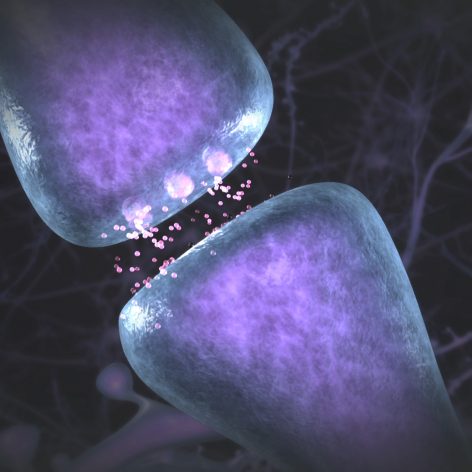The function of neuronal membranes profoundly relies on the composition of phospholipids. Changes to that composition could lead to the instability of membranes and subsequent loss of synapses, which has been associated with Alzheimer’s disease.1Kosicek M and Hecimovic S. del. Int J Mol Sci . Published on 2013;14:1310–22
In Alzheimer’s disease, there is an increased need for specific nutrients in the brain. 2Mi, et al. Nutrition. Published on 2013;29:1080–89
Research has shown that people with early Alzheimer’s disease, compared with healthy, aged-matched individuals, often have a low availability – both in the circulation and in the brain – of certain key nutrients.3Lopes da Silva et al. Alzheimers Dement. Published on 2013 ,4Lin, et al. J Clin Psychiatr. Published on 2012 ,5Loef, et al. J Alzheimer Dis. Published on 2011 ,6Olde Rikkert, et al. ADPD. Published on 2013 ,7Trushina, et al. PlosOne. Published on 2012 ,8van Wijk, et al Alzheimer’s & Dementia: Diagnosis, Assessment & Disease Monitoring. Published on 2017 These include DHA, choline, vitamin B12, folate, vitamin C and vitamin E. Each of these nutrients has an important role in supporting brain health. B-vitamins, choline, and omega-3 fatty acids are essential for neuronal functioning and cognition. 9Lanska DJ. Handb Clin Neurol. Published on 2010;95:445–76 ,10Reynolds E. Lancet Neurol. Published on 2006;5:949–60 ,11Hopkins FG. J Physiol. Published on 1912;44:425–60 ,12Bourre JM. J Nutr Health Aging. Published on 2006;10:377–85 ,13Smith PJ and Blumenthal JA. Curr Aging Sci. Published on 2010;3:57–66
It therefore follows that these same nutrients could have important roles to play in the pathophysiological processes of Alzheimer’s disease.
Recent reviews show no clear benefits of supplementation with single nutrients such as vitamin E,14Farina N, et al. Cochrane Database Syst Rev. Published on 2017;4:CD002854 folic acid, multivitamin B supplements,15Li MM, et al. Curr Alzheimer Res. Published on 2014;11:844–52 or omega-3 fatty acids 16Canhada S, Nutr Neurosci. Published on 2017;1–10 in the treatment of Alzheimer’s disease. However, evidence does suggest that for a nutritional intervention in Alzheimer’s disease to be effective, it should contain multiple nutritional components. 17von Arnim CA, et al. Nutrition. Published on 2010;26:694–700
View References
| 1 | Kosicek M and Hecimovic S. del. Int J Mol Sci . Published on 2013;14:1310–22 |
|---|---|
| 2 | Mi, et al. Nutrition. Published on 2013;29:1080–89 |
| 3 | Lopes da Silva et al. Alzheimers Dement. Published on 2013 |
| 4 | Lin, et al. J Clin Psychiatr. Published on 2012 |
| 5 | Loef, et al. J Alzheimer Dis. Published on 2011 |
| 6 | Olde Rikkert, et al. ADPD. Published on 2013 |
| 7 | Trushina, et al. PlosOne. Published on 2012 |
| 8 | van Wijk, et al Alzheimer’s & Dementia: Diagnosis, Assessment & Disease Monitoring. Published on 2017 |
| 9 | Lanska DJ. Handb Clin Neurol. Published on 2010;95:445–76 |
| 10 | Reynolds E. Lancet Neurol. Published on 2006;5:949–60 |
| 11 | Hopkins FG. J Physiol. Published on 1912;44:425–60 |
| 12 | Bourre JM. J Nutr Health Aging. Published on 2006;10:377–85 |
| 13 | Smith PJ and Blumenthal JA. Curr Aging Sci. Published on 2010;3:57–66 |
| 14 | Farina N, et al. Cochrane Database Syst Rev. Published on 2017;4:CD002854 |
| 15 | Li MM, et al. Curr Alzheimer Res. Published on 2014;11:844–52 |
| 16 | Canhada S, Nutr Neurosci. Published on 2017;1–10 |
| 17 | von Arnim CA, et al. Nutrition. Published on 2010;26:694–700 |


